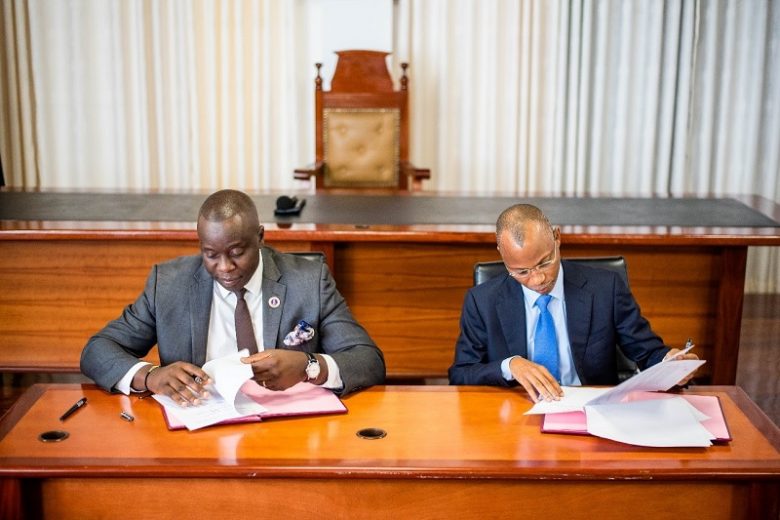The Maputo Port Development Company and the Maputo Provincial Government today signed an agreement for the transfer of a 20-hectare plot of land in the administrative post of Pessene, Moamba district.
The agreement follows a working meeting held on March 6 between the Minister of Transport and Communications, Dr. Mateus Magala, the Governor of Maputo Province, Júlio José Parruque, and the Executive Director of MPDC, Osório Lucas, with the aim of providing a rapid response to the challenges of traffic congestion on the N4.
“We hope, with this act, to contribute to the response to the problem of the N4 and other access roads, bringing greater mobility of people and goods and accelerating economic development,” said the Governor of Maputo Province. The Governor added, however, that “the problem is not exclusively caused by trucks, but by the expressive number of vehicles that circulate in the country’s biggest traffic corridor”, which has doubled from 250 thousand to about 450 thousand, according to him during the signing of the agreement.
In the 20 hectares now given to the MPDC, a truck traffic management park will be built, with commercial services included, and where some port processing activities will be developed that will allow for more efficiency. “This is a happy marriage but, above all, it is a different way of looking at logistics in our country,” said Osório Lucas. “We need to find mechanisms that promote the growth of the Port, but we also need to think about the dynamics and sustainability of the surrounding communities and the well-being of citizens who live in this province,” he continued.
“We want and need this truck movement. As an industrial province, they are essential for promoting economic development and generating employment,” the Governor stressed. “This agreement solves society’s problem, boosts the economy and allows local players to get involved. We are very comfortable signing this agreement with MPDC for its purpose, and for the exemplary management that we know the company will give to the project,” he concluded.
The first phase of the work will take about 3 months (for cleaning, earth moving, fencing, and the addition of basic water and power services) and will cost approximately 3 million US dollars.

